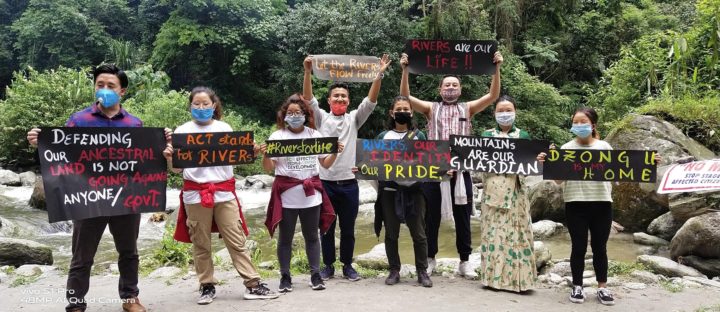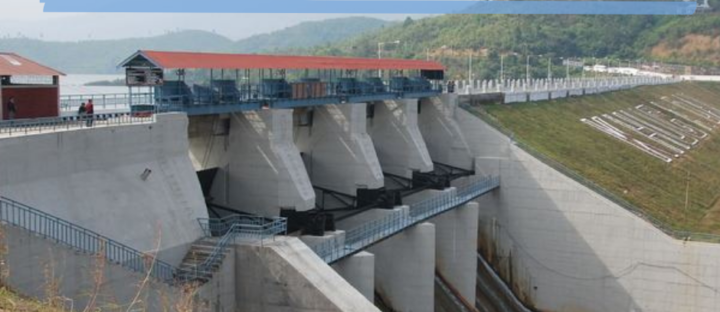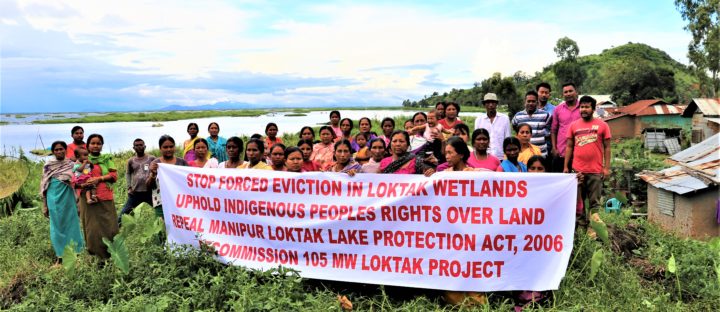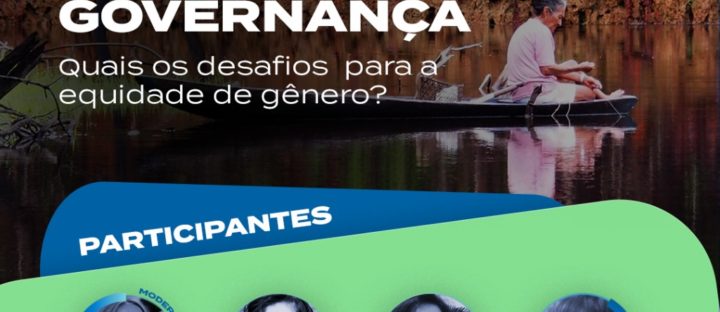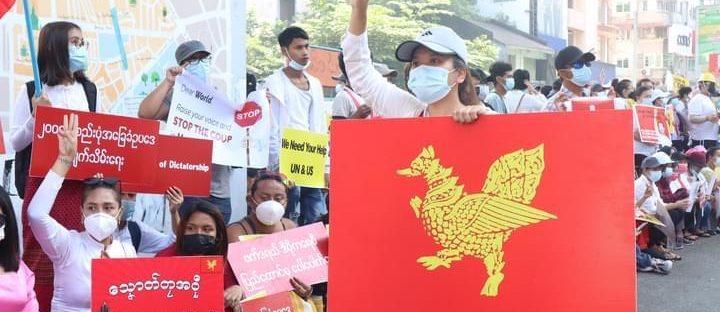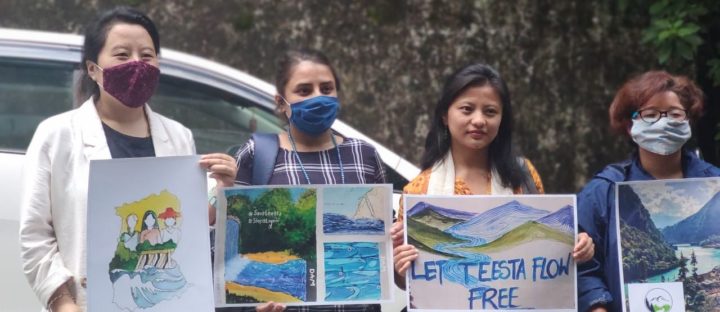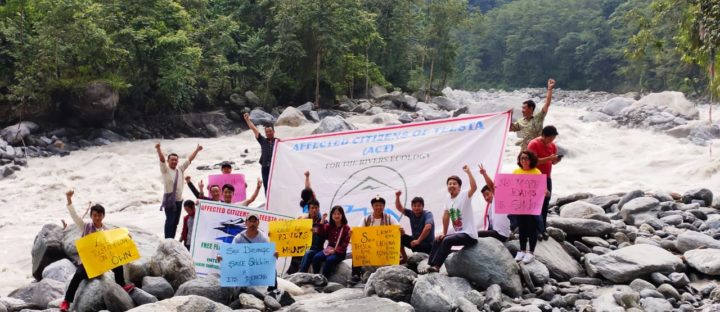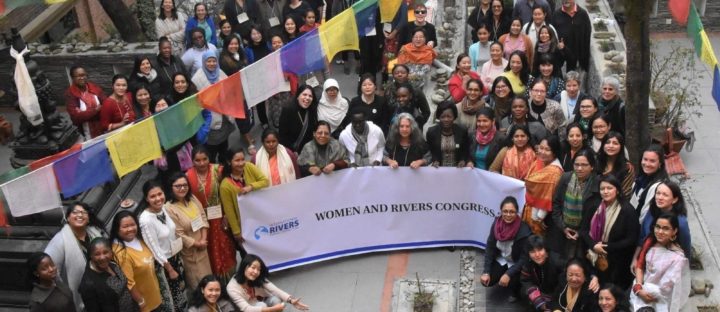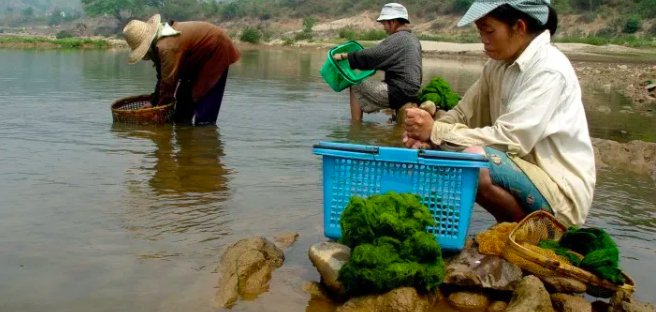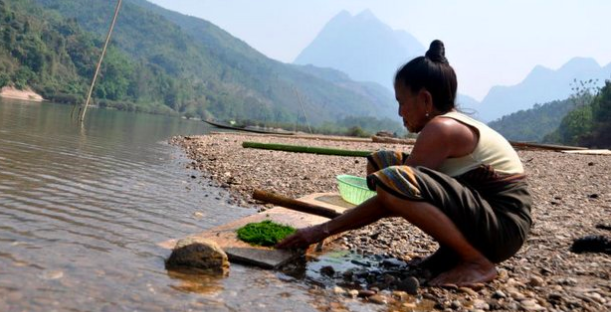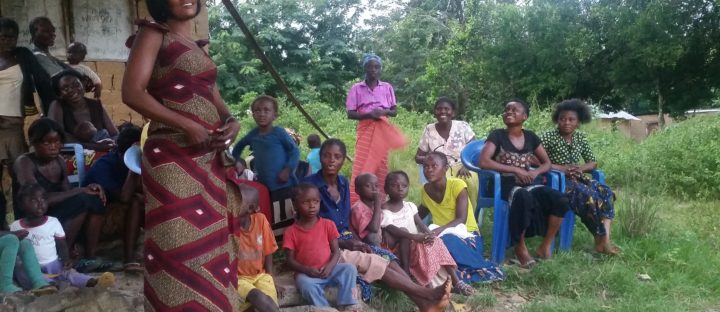By Petro Kotze She fights for the survival of the only place she belongs Some people already consider the Lepchas to be a vanishing tribe, says Marmit Lepcha, a Lepcha from Dzongu, in India’s North Sikkim region but, “this is where I belong.” I only understood this once I was away from my home, the…
Read MoreKhuga Dam Continues to Devastate the Lives of Indigenous Women in Manipur, India
By: Christina Larlemdik, Nalori Dhammei Chakma, Jiten Yumnam & Petro Kotze The Khuga Dam is, by all accounts, a failure. Unable to deliver on any of the original objectives of the Khuga Multipurpose Hydroelectric Project, the price of this expensive catastrophe is paid by the local people. Already discriminated against due to their position in…
Read MoreHow Hydropower Development Devastated the Loktak Wetlands and the Livelihoods of Women and Communities
By: Jiten Yumnam, Nalori Dhammei Chakma and Petro Kotze The Meitei people call the Loktak Wetlands in India’s North East region Loktak Lairembi or, the mother goddess. The wetlands are the foundation of their socio-economic development and rich cultural heritage, but has been decimated by the construction of the contentious and controversial 105 MW Loktak…
Read MoreWater, Women, and Governance: What are the challenges for gender equity? (Webinar)
On March 30, 2021, at 5 pm, Brasília time, the Water Governance Observatory (OGA), the Institute of Water and Sanitation (Instituto Água e Saneamento, IAS), International Rivers and Fundación Avina promote the Webinar “Water, women and governance: what are the challenges for gender equity?”. The event will be broadcast on the YouTube channel of the…
Read MoreOp-Ed | Women Bear the Highest Cost of Injustice
By: Pai Deetes, Regional Campaigns and Communications Director, Southeast Asia ProgramInternational Rivers Op-ed originally published on Bangkok Post Soithip, an ethnic Karen-Thai woman from Bang Kloi in the Kaeng Krachan Forest, was among 22 villagers who were rounded up last Friday by state authorities and put behind bars at the Phetchaburi Provincial Prison. Returning to…
Read MoreA legal challenge to dams on the last free flowing stretch of the Teesta: Ms. Mingma Lhamu, a Sikkimese lawyer up for the challenge!
A young women lawyer working with indigenous Lepcha activists to protect the last free flowing stretch of the Teesta from a destructive dam. By: Ayesha DSouza, South Asia Program Coordinator & guest writer Melanie Scaife The Teesta River originates in the eastern Himalayas, winding its way through the Indian states of Sikkim and West Bengal…
Read MoreSpeaking up for a silenced river
By: Ayesha DSouza, South Asia Program Coordinator & guest writer Melanie Scaife Mayalmit Lepcha grew up listening to the sounds of the Rongyoung River, which flows past her village in Dzongu, in the Indian state of Sikkim. This tiny state lies in the heart of the Himalayas between Nepal, Bhutan and Tibet, and is a…
Read MoreWomen’s Voices Reign at First-Ever Women & Rivers Congress
By: Pai Deeetes, Thailand and Myanmar Campaigns Director One word stood out on the screen, above all others: Stories. It was the answer to a question posed on Day 1 of the first-ever Women & Rivers Congress, and it appeared above the crowd thanks to an interactive, real-time voting app. The question: What was your…
Read MoreWomen’s rights and river protection
By: Maureen Harris, Programs Director This article was originally featured on Asia Times Usually at this time of year during the dry season in northern Thailand, the Mekong River recedes, and sand and pebble beaches appear. Covering the pebbles, through the clear and shallow water, one can see the pale green kai, a river weed of…
Read MoreIN THE NEWS | Women must be central to Mekong dam decisions
By: Maureen Harris, Programs Director Originally published on Bangkok Post Today, on International Women’s Day, a recent trip to the Mekong Basin serves as a reminder that women’s voices must be central to decision-making on hydropower, and in broader energy planning for Thailand and the region. The Nam Ou River, a longest tributary of the…
Read MoreThe Women of Inga: A Portrait of Resilience
“Go and tell them that we, the women of Inga, are suffering” By: Ange Asanzi, former Africa Program Associate One thing is for certain: the women of Inga are self-sufficient. They grow avocados, oranges, bananas, cassava, nuts and beans. They harvest medicinal plants to tend to their sick. Nearly everything they consume comes from their…
Read More
